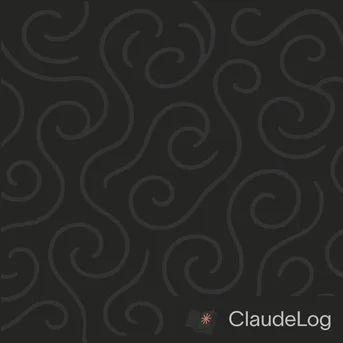Does Claude Code Store My Data
I consider data privacy carefully when using Claude Code. Claude Code processes your code and conversations through Anthropic's AI models, which involves sending data to Anthropic's servers. Understanding what data is transmitted and how it's handled is important for security-conscious development.
What Data Gets Sent
Code Content
When you interact with Claude Code, specific types of data are transmitted to Anthropic's servers for processing. Files that Claude Code reads are sent in their entirety for analysis, allowing the AI to understand your code structure and provide relevant assistance. Your prompts, Claude's responses, and the ongoing conversation context are all processed on Anthropic's servers to maintain conversation continuity.
Additionally, file names, directory structures, and project organization details may be included to provide Claude with better context about your project's architecture and how different components relate to each other.
What Stays Local
Your data privacy is partially protected by Claude Code's selective file reading approach. Only files that Claude Code explicitly reads are sent to servers, while other project files remain safely on your machine untouched. Claude Code cannot access your databases, external APIs, or running applications unless you explicitly share that information.
Your local environment, installed packages, and system configuration stay local unless you explicitly share them in your conversations. This means Claude Code doesn't automatically scan your entire system or send environment details without your knowledge.
Data Processing Location
Understanding where your data is processed helps you make informed decisions about Claude Code usage. All AI analysis happens on Anthropic's servers, not locally on your machine, which means your code and conversations are processed in Anthropic's cloud infrastructure.
Claude Code doesn't run AI models locally - it functions as a client that communicates with Anthropic's cloud services. This architecture keeps the AI models updated and powerful but requires sending your data to external servers. Because of this cloud-based approach, Claude Code requires an active internet connection to function properly.
Anthropic's Data Policies
Data Retention
According to Anthropic's current data retention policy:
Consumer Products (Claude Pro/Free):
- Standard conversations: Deleted immediately from conversation history, automatically deleted from backend within 30 days
- Usage policy violations: Inputs and outputs retained up to 2 years, trust and safety scores up to 7 years
- Feedback submissions: Data retained for 10 years when you provide feedback or bug reports
API Users:
- Standard retention: Different policy for commercial API customers (consult your agreement)
- Zero Data Retention (ZDR): Some enterprise API customers have agreements where Anthropic doesn't store inputs/outputs except for safety compliance
- Files API exception: Files uploaded via Files API are retained regardless of ZDR until you delete them
Data Usage
- Training policy: Inputs and outputs will NOT be used to train models except for conversations flagged for Trust & Safety review, explicitly reported materials, or user opt-in
- Safety monitoring: Data may be retained as required by law or to combat Usage Policy violations
- Research: May anonymize data for research purposes with extended retention
For complete details, see Anthropic's Privacy Policy and Privacy Center.
Model Training and Consumer Consent
Updated Privacy Terms (August 2025)
Anthropic has updated their consumer terms to request permission for using chats and coding sessions to train AI models and improve Claude for everyone. This change applies specifically to consumer accounts and provides you with full control over your data usage preferences.
Consumer Accounts (Affected by New Policy):
- Claude Free, Pro, and Max subscription accounts (including Claude Code usage)
- You can opt-in to contribute your interactions for model improvement
- You can opt-out and change your choice at any time
- Only new or resumed sessions are used for training (never historical data)
Commercial Accounts (Not Affected):
- Anthropic API users continue under existing data processing agreements
- Claude for Work, Education, and enterprise accounts operate under different terms
- These accounts are not subject to the consumer consent policy changes
Your Choice and Control
When you opt-in to model training data usage, your Claude Code sessions help:
- Train classifiers to make AI models safer and more reliable
- Improve Claude's coding, analysis, and reasoning capabilities
- Support AI safety research that benefits all users
If privacy is a primary concern for your development work, you can opt-out of model training while continuing to use Claude Code normally, or consider switching to API authentication which operates under different data processing terms.
Security Considerations
Sensitive Code
I recommend avoiding Claude Code with highly sensitive codebases to protect your most valuable intellectual property and confidential information. Production secrets or API keys should never be included in code that Claude analyzes, as these could compromise your security if exposed. Proprietary algorithms with significant business value represent core competitive advantages that require careful protection.
Customer data or personal information should remain out of Claude Code interactions to maintain privacy compliance and customer trust. Code under strict NDA or confidentiality agreements typically prohibits sharing with third-party AI services, making Claude Code usage a potential contract violation.
Safe Practices
Implementing safe practices helps you benefit from Claude Code while protecting sensitive information. Environment variables containing production secrets should be excluded from code that Claude analyzes - use placeholder values or configuration examples instead. When asking Claude to work with data structures, use sample or anonymized data that demonstrates the structure without exposing real information.
Be mindful of what code you're asking Claude to review, especially for security-critical components that could reveal vulnerabilities or sensitive business logic. Consider using Claude Code only on non-sensitive parts of larger projects, allowing you to gain AI assistance while keeping critical components internal.
Enterprise Considerations
Team Usage
Enterprise teams need to consider additional privacy and security factors when implementing Claude Code across their organization. Shared API keys mean that team members may have access to usage logs, creating potential visibility into each other's development work. API usage can be monitored through the Anthropic Console for compliance purposes, providing audit trails that some organizations require.
Establishing team policies about what code can be analyzed with Claude Code helps maintain consistent security practices across the organization. Enterprise API customers may be eligible for Zero Data Retention agreements where Anthropic doesn't store inputs/outputs, though this applies only to API usage, not Claude for Work or other products.
Compliance
Different industries have varying requirements for AI-assisted development and data handling. Consider how Claude Code usage fits with your industry's specific regulations, especially in heavily regulated sectors like finance, healthcare, or government contracting. Ensure Claude Code usage aligns with your organization's existing code confidentiality policies and doesn't create conflicts with established security practices.
Be particularly careful when working on client projects with strict confidentiality requirements, as client contracts may explicitly prohibit sharing code with third-party AI services. Check your specific Data Processing Agreement for detailed data handling terms that apply to your commercial relationship with Anthropic.
Best Practices
Code Preparation
Preparing your code thoughtfully before Claude analysis helps maximize the benefits while minimizing privacy risks. Create simplified versions of complex code for Claude analysis when possible, removing unnecessary complexity that might expose sensitive business logic. Remove customer names, internal references, and business-specific details when practical to maintain confidentiality while still getting valuable assistance.
Analyze individual functions or components rather than entire sensitive systems, allowing you to get targeted help without exposing your complete architecture or revealing how different system components interact.
Development Workflow
I find Claude Code works exceptionally well for specific types of development work where privacy concerns are minimal. Public projects and open-source work benefit tremendously since data sensitivity isn't a concern, and the collaborative nature aligns with Claude's capabilities. Personal projects and learning exercises represent perfect use cases where you can experiment freely without organizational constraints.
Prototyping and proof-of-concept development work well with Claude Code since these typically don't contain production secrets or sensitive customer data. Claude Code excels at helping you understand unfamiliar codebases and learn new patterns, making it valuable for educational purposes and skill development.
I use Claude Code where AI assistance provides the most value while keeping sensitive code analysis and unfiled intellectual property internal. This approach lets me benefit from Claude Code while maintaining appropriate security practices. Always check Anthropic's Privacy Center for current data handling policies.
See Also: Model Training Policy|Configuration|CLAUDE.md Supremacy|Security Best Practices

